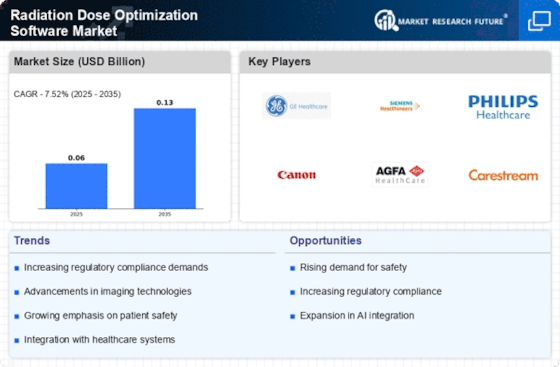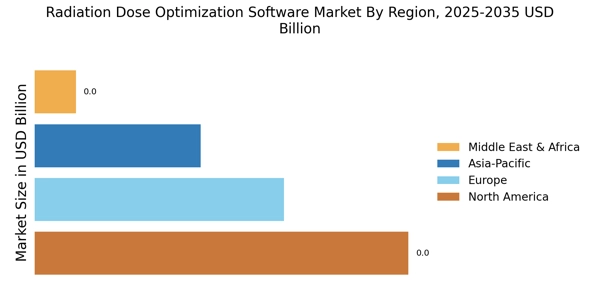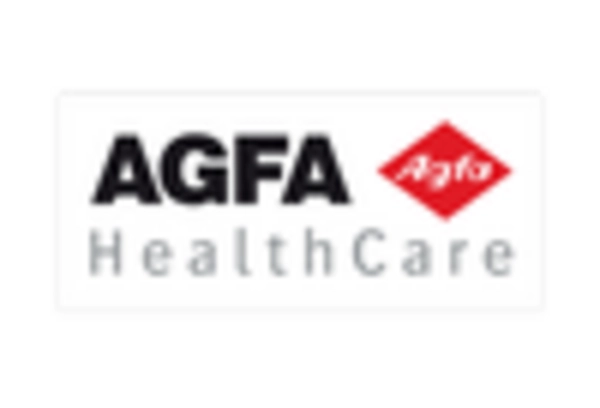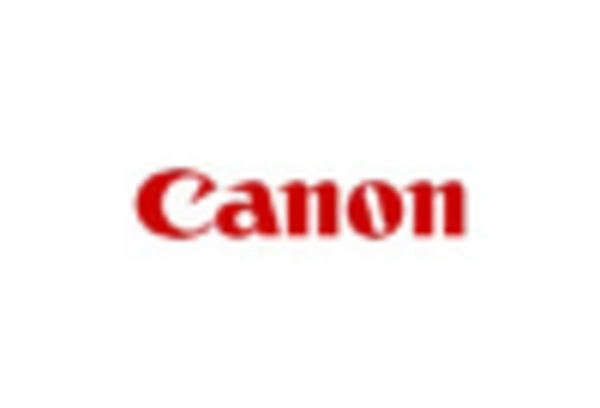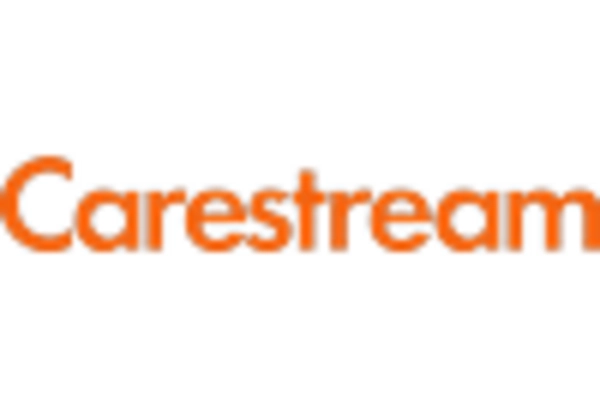Growing Focus on Cost-Effectiveness
The growing focus on cost-effectiveness is emerging as a significant driver within the Radiation Dose Optimization Software Market. Healthcare providers are increasingly seeking solutions that not only enhance patient safety but also reduce operational costs associated with radiation procedures. By optimizing radiation doses, facilities can minimize unnecessary exposure, thereby potentially lowering the costs related to patient management and treatment. Furthermore, the implementation of radiation dose optimization software can lead to improved workflow efficiencies, which can translate into financial savings for healthcare institutions. As the industry continues to evolve, the emphasis on cost-effectiveness is likely to drive further investments in radiation dose management technologies, positioning the Radiation Dose Optimization Software Market for sustained growth.
Increasing Demand for Patient Safety
The Radiation Dose Optimization Software Market is experiencing a notable surge in demand driven by an increasing emphasis on patient safety. Healthcare providers are increasingly prioritizing the minimization of radiation exposure during diagnostic and therapeutic procedures. This trend is underscored by the growing awareness of the potential risks associated with radiation, leading to a heightened focus on optimizing doses. According to recent data, the market for radiation dose management solutions is projected to grow at a compound annual growth rate of approximately 10% over the next five years. This growth reflects a broader commitment within the healthcare sector to enhance patient outcomes while ensuring compliance with safety standards. As a result, the Radiation Dose Optimization Software Market is likely to witness significant advancements in technology and methodologies aimed at achieving optimal radiation doses.
Rising Incidence of Chronic Diseases
The rising incidence of chronic diseases is significantly impacting the Radiation Dose Optimization Software Market. As the prevalence of conditions such as cancer and cardiovascular diseases increases, the demand for diagnostic imaging and radiation therapy is also on the rise. This trend necessitates the use of advanced radiation dose optimization software to ensure that patients receive the appropriate levels of radiation while minimizing risks. The increasing number of imaging procedures performed annually highlights the need for effective dose management solutions. Consequently, healthcare providers are likely to invest in radiation dose optimization technologies to enhance treatment efficacy and patient safety. This growing demand indicates a robust future for the Radiation Dose Optimization Software Market, as it adapts to the evolving healthcare landscape.
Regulatory Pressures and Compliance Requirements
Regulatory pressures and compliance requirements are increasingly influencing the Radiation Dose Optimization Software Market. Governments and health organizations are implementing stringent regulations aimed at minimizing radiation exposure to patients. These regulations necessitate the adoption of advanced software solutions that can monitor, manage, and optimize radiation doses effectively. Compliance with these regulations is not only essential for patient safety but also for healthcare facilities to avoid potential legal repercussions. As a result, the market for radiation dose optimization software is likely to expand as healthcare providers invest in technologies that ensure adherence to regulatory standards. The ongoing evolution of these regulations suggests that the Radiation Dose Optimization Software Market will continue to adapt and innovate in response to changing compliance landscapes.
Technological Advancements in Imaging Techniques
Technological advancements in imaging techniques are playing a pivotal role in shaping the Radiation Dose Optimization Software Market. Innovations such as digital imaging, 3D imaging, and advanced algorithms for dose calculation are enhancing the precision of radiation delivery. These advancements not only improve diagnostic accuracy but also facilitate the effective management of radiation doses. The integration of sophisticated software solutions allows healthcare professionals to analyze and adjust radiation levels in real-time, thereby optimizing patient safety. As imaging technologies continue to evolve, the demand for radiation dose optimization software is expected to rise correspondingly. This trend indicates a potential for the Radiation Dose Optimization Software Market to expand significantly, as healthcare facilities seek to adopt cutting-edge solutions that align with modern imaging practices.


